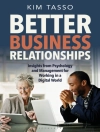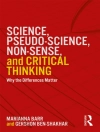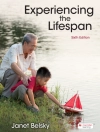Grounded in the updated Posttraumatic Stress Disorder Prevention and Treatment Guidelines of the International Society for Traumatic Stress Studies (ISTSS), the third edition of this definitive work has more than 90% new content. Chapters describe PTSD assessment and intervention practices that have been shown to work and provide practical, real-world implementation guidance. Foremost authorities address the complexities of trauma treatment with adults, adolescents, and children in diverse clinical contexts. The book delves into common obstacles and ways to overcome them, when to stop trying a particular approach with a client, and what to do next. Special topics include transdiagnostic interventions for PTSD and co-occurring problems, dissemination challenges, and analyzing the cost-effectiveness of treatments. Prior edition editors: Edna B. Foa, Terence M. Keane, Matthew J. Friedman, and Judith A. Cohen.
New to This Edition
*Fully rewritten to reflect over a decade of clinical, empirical, and theoretical developments, as well as changes in DSM-5 and ICD-11.
*Increased research-to-practice focus–helps the clinician apply the recommendations in specific clinical situations.
*New chapters on previously covered treatments: early interventions, psychopharmacotherapy for adults and children, and EMDR therapy.
*Chapters on additional treatments: prolonged exposure, cognitive processing therapy, cognitive therapy, combined psychotherapy and medication, e-mental health, and complementary and alternative approaches.
*Chapters on cutting-edge topics, including personalized interventions and advances in implementation science.
Inhoudsopgave
I. Introduction and Background
1. Effective Treatments for PTSD: Guiding Current Practice and Future Innovation, David Forbes, Jonathan I. Bisson, Candice M. Monson, & Lucy Berliner
2. Trauma and PTSD: Epidemiology, Comorbidity, and Clinical Presentation in Adults, Kristina J. Korte, Tammy Jiang, Karestan C. Koenen, & Jaimie Gradus
3. Epidemiology, Clinical Presentation, and Developmental Considerations in Children and Adolescents, Eva Alisic, Rowena Conroy, & Siri Thoresen
4. Diagnosis, Assessment, and Screening for PTSD and Complex PTSD in Adults, Jonathan I. Bisson, Chris R. Brewin, Marylene Cloitre, & Andreas Maercker
5. Screening, Assessment, and Diagnosis in Children and Adolescents, Lucy Berliner, Richard Meiser-Stedman, & Andrea Danese
6. ISTSS PTSD Prevention and Treatment Guidelines: Methodology, Jonathan I. Bisson, Catrin Lewis, & Neil Roberts
7. ISTSS PTSD Prevention and Treatment Guidelines: Recommendations, Jonathan I. Bisson, Lucy Berliner, Marylene Cloitre, David Forbes, Tine Jensen, Catrin Lewis, Candice M. Monson, Miranda Olff, Stephen Pilling, David Riggs, Neil Roberts, & Francine Shapiro
II. Early Intervention in Adults
8. Early Intervention for Trauma-Related Psychopathology, Meaghan L. O’Donnell, Belinda J. Pacella, Richard A. Bryant, Miranda Olff, & David Forbes
9. Early Pharmacological Intervention Following Exposure to Traumatic Events, Jonathan I. Bisson, Laurence Astill Wright, & Marit Sijbrandij
III. Early Intervention in Children and Adolescents
10. Preventative and Early Interventions, Justin Kenardy, Nancy Kassam-Adams, & Grete Dyb
IV. Treatments for Adults
11. Psychological Treatments: Core and Common Elements of Effectiveness, Miranda Olff, Candice M. Monson, David Riggs, Christopher W. Lee, Anke Ehlers, & David Forbes
12. Prolonged Exposure, David S. Riggs, Larissa Tate, Kelly Chrestman, & Edna B. Foa
13. Cognitive Processing Therapy, Kathleen M. Chard, Debra L. Kaysen, Tara E. Galovski, Reginald D. V. Nixon, & Candice M. Monson
14. Eye Movement Desensitization and Reprocessing Therapy, Francine Shapiro, Mark C. Russell, Christopher W. Lee, & Sarah J. Schubert
15. Cognitive Therapy, Anke Ehlers
16. Pharmacological and Other Biological Treatments, Jonathan I. Bisson, Mathew Hoskins, & Dan J. Stein
17. Combined Psychotherapy and Medication Treatment, Mark Burton, Jessica Maples-Keller, Mathew Hoskins, Yilang Tang, Katarzyna Wyka, Jo Ann Difede, & Barbara O. Rothbaum
18. E-Mental Health, Catrin Lewis & Miranda Olff
19. Complementary, Alternative, and Integrative Interventions, Ariel Lang & Barbara Niles
20. Treatment of Complex PTSD, Marylene Cloitre, Thanos Karatzias, & Julian Ford
V. Treatments for Children and Adolescents
21. Treatment of PTSD and Complex PTSD, Tine Jensen, Judy Cohen, Lisa Jaycox, & Rita Rosner
VI. Application, Implementation, and Future Directions
22. Treatment Considerations for PTSD Comorbidities, Neil P. Roberts, Sudie E. Back, Kim Mueser, & Laura K. Murray
23. Building a Science of Personalized Interventions for PTSD, Marylene Cloitre, Zachary Cohen, & Ulrich Schnyder
24. Training and Implementation of Evidence-Based Psychotherapies for PTSD, David S. Riggs, Maegan M. Paxton, Sybil Mallonee, Craig Rosen, Shannon Wiltsey Stirman, & Shannon Dorsey
25. A Health Economics View, Ifigeneia Mavranezouli & Cathy Mihalopoulos
26. The Future of Traumatic Stress Treatments: Time to Grasp the Opportunity, David Forbes, Jonathan I. Bisson, Candice M. Monson, & Lucy Berliner
Over de auteur
David Forbes, Ph D, is Director of Phoenix Australia Centre for Posttraumatic Mental Health and Professor in the Department of Psychiatry at the University of Melbourne. He began practicing as a clinical psychologist in the mid-1990s and has a strong research track record in the assessment and treatment of mental health problems in trauma survivors, with a specialty in military, veteran, emergency services, and post-disaster mental health. Dr. Forbes led the development of the Australian Guidelines for the Treatment of Acute Stress Disorder and PTSD and is Co-Chair of the 5-Eyes Mental Health Research and Innovation Collaboration.
Jonathan I. Bisson, DM, FRCPsych, is Professor of Psychiatry at Cardiff University School of Medicine, Wales, United Kingdom, and a practicing psychiatrist. He is Chair of the Treatment Guidelines Committee of the International Society for Traumatic Stress Studies and is currently developing an All Wales Traumatic Stress Quality Improvement Initiative. Dr. Bisson was Co-Chair of the first PTSD Guideline Development Group of the United Kingdom’s National Institute for Health and Care Excellence. He is a past president of the European Society for Traumatic Stress Studies, and led the development of Veterans NHS Wales. He has conducted widely cited research on the prevention and treatment of PTSD.
Candice M. Monson, Ph D, is Professor of Psychology at Toronto Metropolitan University in Toronto, Ontario, Canada. A Fellow of the American and Canadian Psychological Associations and the Royal Society of Canada, she is a recipient of the Traumatic Stress Psychologist of the Year Award from the Canadian Psychological Association and the Distinguished Mentorship Award from the International Society for Traumatic Stress Studies. Dr. Monson is well known for her research on interpersonal factors in traumatization and the development, testing, and dissemination of treatments for posttraumatic stress disorder (PTSD), including cognitive processing therapy and cognitive-behavioral conjoint therapy for PTSD.
Lucy Berliner, MSW, is Director of the Harborview Center for Sexual Assault and Traumatic Stress at the University of Washington, where she is also Clinical Associate Professor in the School of Social Work and in the Department of Psychiatry and Behavioral Sciences. Her activities include clinical practice with child and adult victims of trauma and crime; research on the impact of trauma and the effectiveness of clinical and societal interventions; and participation in local and national social policy initiatives to promote the interests of trauma and crime victims.












